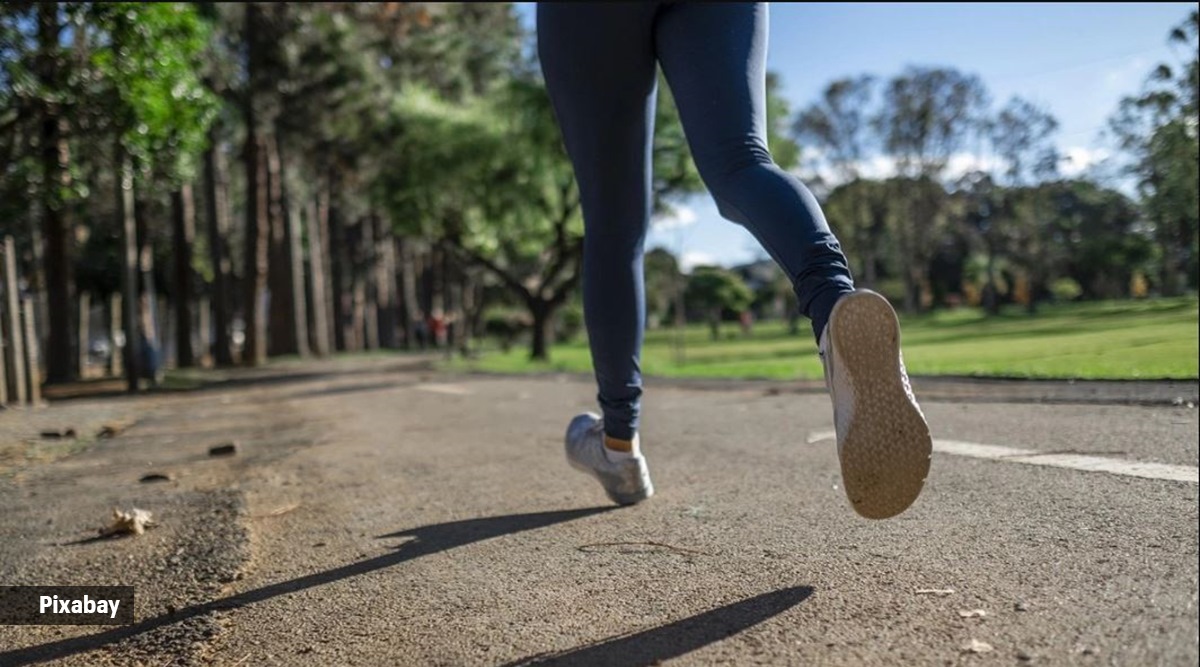- India
- International
You may be taking 10,000 steps a day, but are you walking fast enough?
"Do it the right way and do not over-exert yourself. The ultimate goal of the person should be to stay hale and hearty," said Dr Narayan Gadkar
 You can use a pedometer to count your steps (representative) (Source: Getty Images/Thinkstock)
You can use a pedometer to count your steps (representative) (Source: Getty Images/Thinkstock)All you fitness enthusiasts who ensure to walk your daily quota of 10,000 steps, there is some news for you. A new study notes it is not just the number of steps, but also the pace at which you walk that helps enhance the results. Published in the journals JAMA Internal Medicine and JAMA Neurology, the study monitored 78, 500 adults with wearable trackers — “making these the largest study to objectively track step count in relation to health outcomes”, read the statement from http://www.sydney.edu.au.
The study researchers from the University of Sydney, Australia, and the University of Southern Denmark found that lowered risk of dementia, heart disease, cancer, and death are associated with achieving 10,000 steps a day. However, a faster stepping pace, like a power walk, showed benefits above and beyond the number of steps achieved.
“The take-home message here is that for protective health benefits people could not only ideally aim for 10,000 steps a day but also aim to walk faster,” said co-lead author Dr Matthew Ahmadi, research fellow at the University of Sydney’s Charles Perkins Centre and Faculty of Medicine and Health, in a statement.
Buy Now | Our best subscription plan now has a special price
While step count is easily understood and widely used by the public to track activity levels with help from fitness trackers and apps, senior author Emmanuel Stamatakis, Professor of Physical Activity, Lifestyle and Population Health at the University of Sydney emphasised that “rarely do people think about the pace of their steps”.

The study went on to note that ‘for less active individuals, as low as 3,800 steps a day can cut the risk of dementia by 25 percent’ according to its co-lead author associate professor Borja del Pozo Cruz from the University of Southern Denmark and senior researcher in health at the University of Cadiz.
Participants wore a wrist accelerometer to measure physical activity over a period of seven days (minimum 3 days, including a weekend day and monitoring during sleep periods). The researchers, however, note that the study is observational, meaning “they cannot show direct cause and effect”.
 Walking is essential to mantain physical wellness. (Source: Pixabay)
Walking is essential to mantain physical wellness. (Source: Pixabay)
Here are some key points from the study
*Every 2,000 steps lowered risk of premature death incrementally by 8 to 11 per cent, up to approximately 10,000 steps a day.
*Similar associations were seen for cardiovascular disease and cancer incidence.
*A higher number of steps per day was associated with a lower risk of all-cause dementia
*9,800 steps was the optimal dose linked to lower risk of dementia by 50 percent, however risk was reduced by 25 percent at as low as 3,800 steps a day
*Stepping intensity or a faster pace showed beneficial associations for all outcomes (dementia, heart disease, cancer and death) over and above total daily steps.
However, Dr Sanjith Saseedharan, consultant and head critical care, SL Raheja Hospital, Mahim-A Fortis Associate, pointed out that “a small limitation of this trial is the wide age limits of the participants (40 to 79 years)”, which followed up for seven years. “Hence, it is unlikely that the participants would have reached an age limit where dementia usually sets in, as even the number of participants for each age group isn’t mentioned,” Dr Saseedharan said.
How does walking help?
“Optimal cardio activity helps in cardiovascular exercise, balancing blood pressure, lowering bad cholesterol, increase in good cholesterol, reducing anxiety due to release of endorphins, helping blood circulation, boosting lung health, balancing blood sugar levels, which helps to lower body fat percentage keeping the metabolism high,” lifestyle educator and nutritionist Karishma Chawla said in an earlier interaction.
While walking is a good physical activity, Chawla also pointed out that “it is important to challenge oneself in terms of increase in steps and speed to achieve optimal benefits of this cardio activity”
According to Dr Saseedharan, the study’s finding is an “important one” in comparison to the existing data, as this gives direction for taking the recommended steps — 10,000.
“Walking faster will help to increase the range of motion and shift pressure from the joints to your muscles. You will be able to strengthen the abdominal and leg muscles. Power walking is beneficial for the quads, hamstrings, calf muscles, and hip abductors, and tones the glutes.” said Dr Narayan Gadkar, Consultant Cardiologist, Zen Multi speciality Hospital, Chembur.
However, power walking should be done only after speaking to the doctor, Dr Gadkar noted. “Do it the right way and do not over-exert yourself. The ultimate goal of the person should be to stay hale and hearty, whether through brisk walking or completing 10k steps in a day,” Dr Gadkar mentioned.
How much should you walk?
Dr Nidhi Bajaj Gupta, physiotherapy healer, holistic wellness coach and the founder, Merahki advised that one could power walk 30 minutes per day, five days a week and hit their aerobic quota—a total win for your health. “When you press the pedal on your pace, you definitely will start experiencing cardiovascular benefits, toning of your muscles, enhanced core strength and improved bone density,” said Dr Bajaj Gupta.
Interestingly, Varun Rattan, co-founder, The Body Science Academy, Noida, shared that “a 5’8″ tall man weighing 75 kilograms would burn three calories per minute at the speed of 3.2 kilometers per hour or five calories by walking at the pace of 5.6 kilometers per hour. A 30-minute walk at 3.2 kilometers per hour will burn close to 90 calories, but at 5.6 kilometers per hour, the calories burned will be around 150.”
How to increase your pace when you are a beginner?
The most significant factor in establishing an exercise regimen, including a walking routine, is consistency, Rattan told indianexpress.com while mentioning that walking at a comfortable speed is preferable. “Your focus should therefore be on taking frequent walks prior to increasing duration or pace. As your fitness level improves, you will be able to walk faster or farther without much extra effort,” said Rattan.
📣 For more lifestyle news, follow us on Instagram | Twitter | Facebook and don’t miss out on the latest updates!
Apr 20: Latest News
- 01
- 02
- 03
- 04
- 05


































